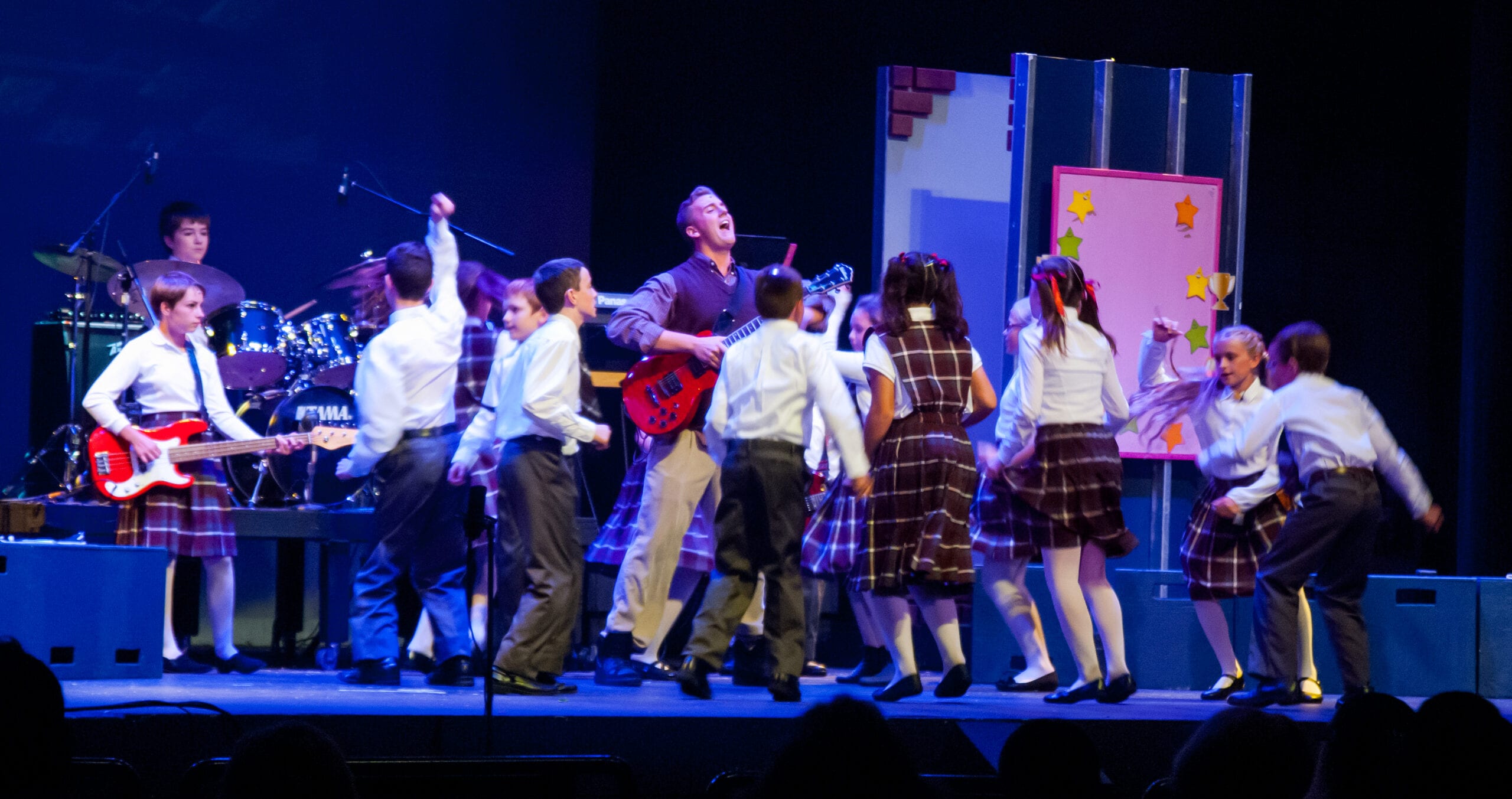Each year, we welcome thousands of children into our theatre. Some of these children are participants, while others walk through our doors as supportive spectators. We understand that fostering an appreciation and an affinity for the arts at a young age will have a lifelong impact. Involvement in the arts has the ability to help children in unique ways as they grow and prepare for the future. Here are just a few ways the arts foster growth:
- The Arts Develop Math and Reading Skills
The arts help children learn that they can be rewarded through hard work, practice, and discipline. These are important skills to develop while children are in school. Dr. Richard Letts, Executive Director of the Music Council of Australia is one of many researchers who have concluded that participating in the arts has the ability to help students improve their skills in a range of academic subject areas, such as math and language. "The earlier a child comes to grips with music, the more the brain growth will be influenced," writes Letts, "It sets them up for life."
- The Arts Breed Confidence
From concerts to writing contests to theatrical productions, the arts help children put themselves out into their community through showcasing work they have done. Participation in the arts develops a student’s skills in a specific area they they are passionate about, like singing or writing. Rehearsal and editing processes help children realize they won't always get everything right the first time and that working well with the other artists around them can help them reach their goals.
"Playing in a group, working together and developing negotiation skills are complex processes you have to work through to build a certain confidence," said Margaret Bradley, a music expert with the New South Wales Department of Education and Communities.
Inevitably, mistakes will be happen. The mistakes made have the ability to ingrain in children that failure is not final and practice brings about progress, helping to build their confidence in themselves to succeed.
- The Arts Build Relationships
The arts have the power to bring people together who may not otherwise meet one another. An avid sports fan with a love for music composition may become best friends with a theatre enthusiast who has developed a passion for singing. A first time musical participant may become friends who someone who has been doing shows since he/she was in grade school. In the article “Why Music Listening Makes Us Feel Good,” Dr. Rebecca Sena Moore explains that that many researchers have found that listening to music has a positive effect on our brains.
"When we anticipate and then actually experience a pleasurable response while listening to music, our brain reacts in distinct and specific ways to release the "feel good" chemical dopamine," writes Moore.
Playing music with others also adds to the release of dopamine that takes place in our brains, strengthening bonds among musicians and each other, as well as their audience members. Friends can become family and lives can be changed through the growth children see in one another while rehearsing for a show or concert, participating in an art festival, or showcasing their talents during a small get together.
- The Arts Teach Perseverance
Picking up a guitar, tickling the ivories, or playing notes on a clarinet may open a child's eyes to seemingly endless possibilities. Throughout life, perseverance is essential to any and all success.
“First comes interest. Passion begins with intrinsically enjoying what you do…Next comes the capacity to practice. One form of perseverance is the daily discipline of trying to do things better than we did yesterday…Third is purpose. What ripens passion is the conviction that your work matters…And, finally, hope. Hope is a rising-to-the-occasion kind of perseverance," writes Angela Duckworth in her book "Grit: The Power of Passion and Perseverance.”
Exposing children to the arts shows them that passion for something can take them far in life. First, their heart and mind have to be in it and then they have to work hard even when challenges present themselves.
These are just four of many ways that the arts enhance a child’s life. From musical instruments to live productions and more, the opportunities for children to learn, grow, and discover more about themselves and others through the arts is endless. If you are interested in learning more about our programs for youth and students, click here.
